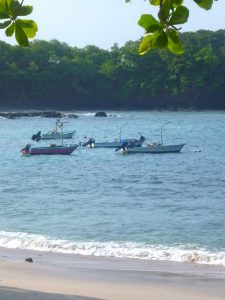
The isolated Nicoya peninsula in northwest Costa Rica is one of my favourite places in the world – where rainforests populated by parrots, monkeys and armadillos meet golden beaches decorated with shells and coconuts.
Perhaps its beauty is rubbing off on the residents. I’ve just written an article for Nature News about a study to measure the Nicoyans’ telomeres – protective caps on the end of our chromosomes that shorten with age. It found that the inhabitants of Nicoya have significantly longer telomeres than other Costa Ricans.
This fits with previous reports that Nicoya is a “longevity hotspot”, where people have a particularly high chance of living into their nineties and beyond.
Costa Ricans in general are already quite long-lived. According to UN data, life expectancy at birth is 79 years. Men who reach age 60 can expect to live another 22 years, higher than in western Europe or the US, which spend vastly more on healthcare. A 2012 study found that in Nicoya – one of the country’s poorest regions – 60-year-old men can expect to survive 2-3 years longer even than that.
The latest finding that Nicoyans have longer-than-average telomeres suggests a biological mechanism. In other words, something is causing them to age more slowly. But what? The researchers looked at lots of potential factors, from education to fish oil consumption.
Diet, health and economic circumstances didn’t explain the difference – in fact people in the poorest households had longer telomeres. But David Rehkopf from the Stanford School of Medicine, who led the study, suggests social ties might be part of the answer. Nicoyans were less likely to live alone than other Costa Ricans, and to have at least weekly contact with a child.
The difference in telomere length was smaller in people who had no regular contact with children, and disappeared all together in those who lived alone.
Elderly people with more social support can presumably live more healthily. In addition, the psychological benefits of close social ties may protect Nicoyans from the ravages of age. “Nicoyans may have figured out how to tap in to the positives of family, both materially and psychologically – in ways that benefit older individuals,” says Rehkopf.
There’s a growing body of evidence suggesting that psychological factors such as stress and social relationships can affect telomere length – I wrote about some of it in this feature for New Scientist.
Demographer Michel Poulain visited Nicoya in 2007 with the National Geographic-funded “Blue Zones” project (which first identified the region as a longevity hotspot) and interviewed 35 residents aged 95 and over. He told me that he was struck by how involved the elderly are in the community. “As they are still needed, they continue to live,” he says.
But he says that as the region is becoming more developed, lifestyles are changing, so the Nicoyans’ exceptional longevity may not last for much longer. We had better learn our lessons from them quick.

Leave a Reply